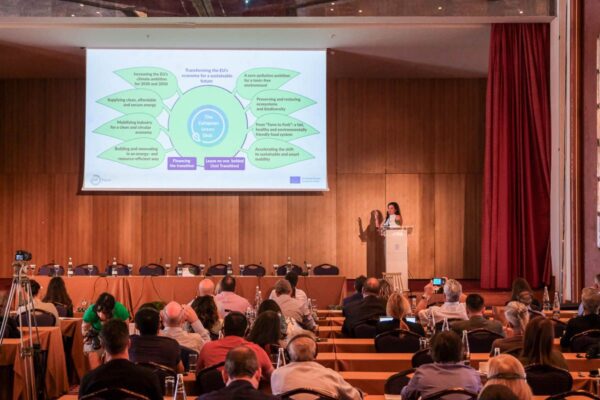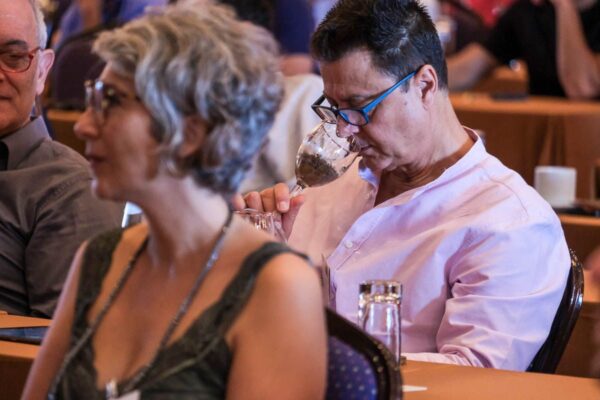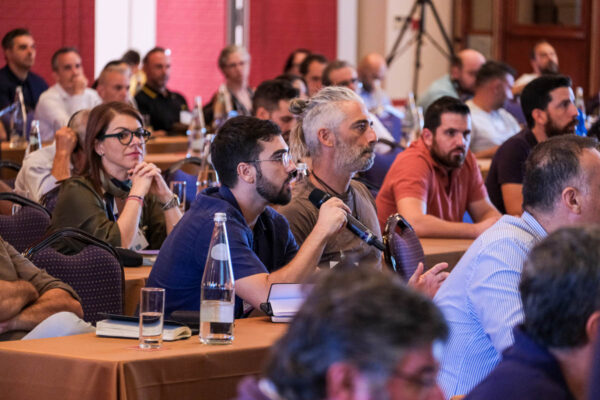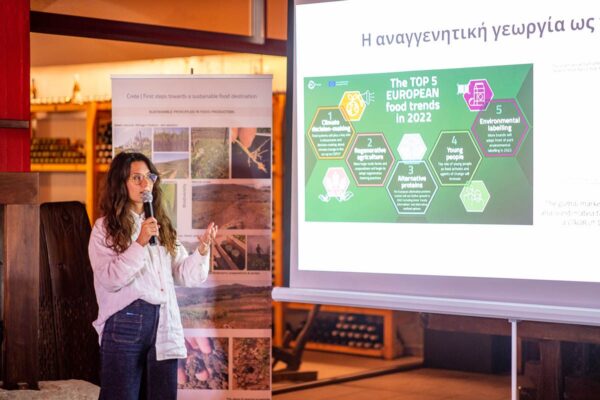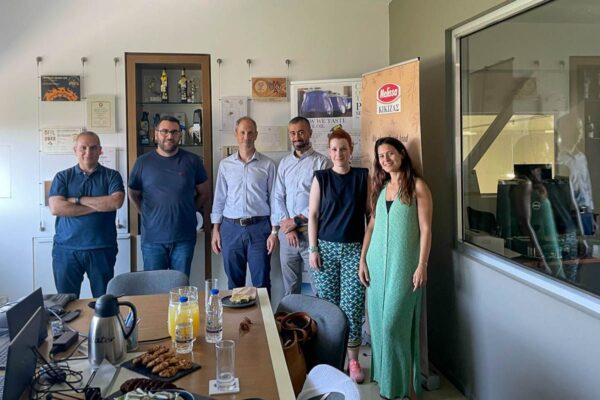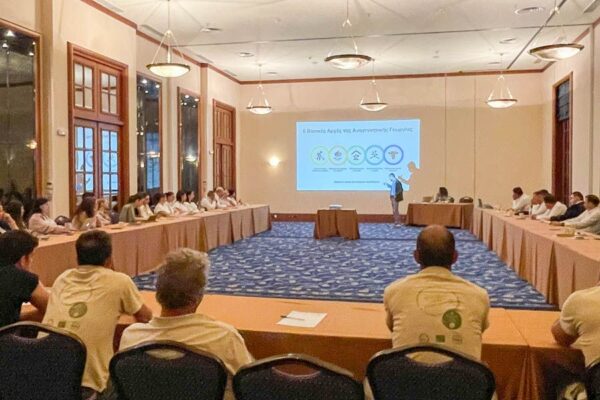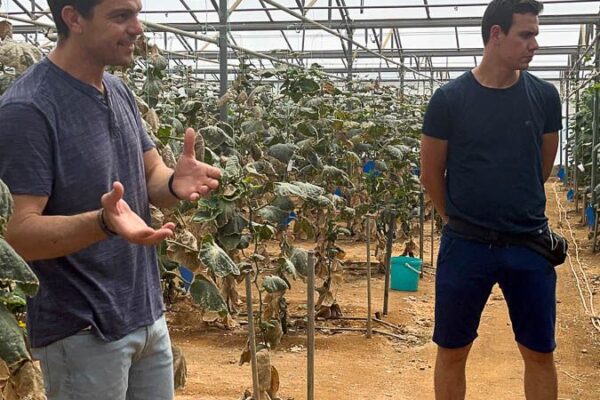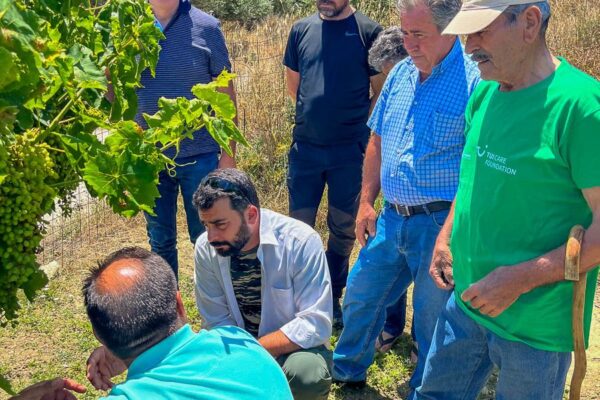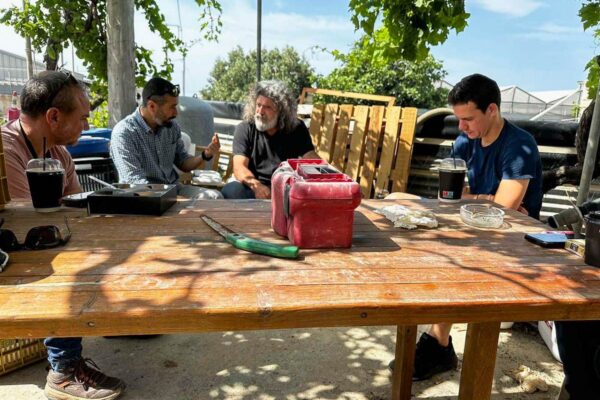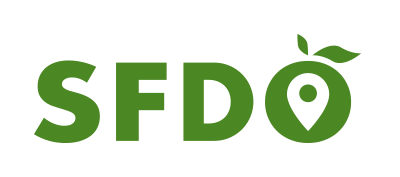Regenerative Food Supply Chain
in Hospitality Services
TUI Field to Fork Greece_Crete & Rhodes is the first project of its kind in Greece.
The aim of TUI Field to Fork Greece is to support food producers on the island of Crete in their transition to Regenerative Agriculture practices (with an emphasis on understanding and reducing their carbon footprint) —to stimulate existing relationships and create new ones between farmers, Food Production Units, hotels and the local Chalkiadakis supermarket chain in Crete— to increase sales and supply of regenerative agricultural products to the tourism sector and beyond.
It attempts to introduce and incentivize regenerative practices by leveraging hospitality services.
Its design was based on the deliverables of the previous TUI Care Foundation 3 Years project Taste Crete | First steps towards Sustainable Food Destination 2017–19.
This is a 3-year program in collaboration with TUI Care Foundation, Futouris, and Local Food Experts to bring regeneration to the islands of Crete & and Rhodes.
- Country: Greece
- Destination(s) of implementation: Crete and Rhodes
- Start date: 1.1.2023
- End date: 30.06.2025
OUTCOMES
- The project will support farmers on the Greek islands of Crete and Rhodes to transition to regenerative agricultural practices by implementing a full learning/practice cycle:
- introduction
- understanding
- inspire – motivate
- knowledge build-up
- apply in practice
- facilitate change
- One of the focus aspects of this support will be reducing the carbon footprint of the agricultural products.
- The project will furthermore link the participating farmers with food production units and the tourism industry to create better income opportunities, increase the offer sustainable food products and raise awareness among staff and guests for regenerative food production.
- To achieve the latter, staff of the participating businesses will receive training to comprehend the benefits for the business and help them understand the necessity and urgency of the required transition, to achieve long-term engagement for the topic of sustainable food.
- In addition to hotels, a local retailer chain will be part of this program to reach both tourists and locals with sustainable food offers. Through these actions, sustainable food supply chains in tourism and beyond will be created.
Why Field to Fork programme?
A. Farming as usual is no longer an option.
Soil is a non-renewable resource. Within 50 years, there may not be enough soil left to feed the world. More than half of the world’s agricultural land is degraded. This leads to productivity losses of $400 billion a year and is a risk to food security in the future.
B. Greenhouse Gas Emissions
One-third of the world’s greenhouse gas emissions come from food production. Getting food from field to table means growing, processing, packaging, storing, transporting, refrigerating, and cooking – all of which require energy and contribute to the carbon footprint of food supply chains. Tourism is responsible for roughly 8% of the world’s carbon emissions. Food & beverage makes up 10% of the total carbon footprint of tourism, being among the three most important factors in overall tourism carbon emissions.
C. Transition Barriers
Farming economics is the number one factor impeding the shift to sustainability. The average annual family farm income in the EU is nearly 60% lower than that of non-farming families. Lack of knowledge or available information is the second most cited barrier to practicing adoption after high perceived investment costs.
D. Destination specifics
South Aegean is already facing fast desertification in some areas. Soil degradation in others that leads to an increasing need for chemical inputs to sustain and secure production. Biodiversity loss, water scarcity, and extreme climate phenomena that are becoming more common are causing harvest disruption and yield volatility that leaves farmers despaired and creates significant income loss.
E. Tourism industry-leading in
Tourism services can play a leading role in this, be a front-runner, and showcase the success and know-how for this much-needed transition —both socially and business wise— while benefiting as an industry from the creation of unique, authentic, beyond sustainable, balanced destinations that will serve best the experience of visitors, the livelihood of the locals and our planet
